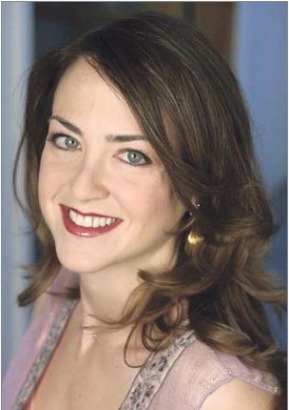Women and Intermarriage
by Heather Robinson

From The Jewish Week
Nearly six in 10 U.S. Jews married since 2000 have a non-Jewish spouse. Are we losing identity or gaining family?

Jennifer Marcus Crivella, a 43-year-old stay-at-home mother and former elementary school teacher, the only child of protective parents, was raised in Pittsburgh to date “only nice Jewish boys.”
But as early as high school, the boy she really loved — now her husband — was Eric Crivella, 44, a Henry-Winkler-as-Fonzie lookalike.
“No matter what other boys I was seeing, I always wanted to be with Eric,” she said recently via speakerphone, while shuttling the couple’s children, Sydney, 3, and Tyler, 8, to play dates in the town of Katy, Texas, where the family lives.
The Crivellas’ story reflects a not-uncommon phenomenon: a couple falls in love, intermarries, the non-Jewish partner agrees to raise the children as Jews — then converts.
Never has this type of story been more relevant than at present, when, according to the Pew Research Center’s 2013 “Portrait of American Jews” released last month, nearly six in 10 American Jews who have married since 2000 have a non-Jewish spouse.
Some Jewish communal leaders welcome interfaith couples.
“The goalpost has moved from ‘Do you marry someone Jewish?’ to ‘How will you raise your kids?’” said Paul Golin, associate executive director of the Jewish Outreach Institute, a national organization based in New York and dedicated to helping interfaith families connect to Jewish institutions and programs.
Most rabbis, even those who are savvy to the modern dating scene, take a harder line.
“I’m against Jews marrying non-Jews,” said Arnie Singer, an Orthodox rabbi who has created Jzoog.com, a new online dating website that matches Jews with other Jews and requires its users to be of the faith.
As for Jennifer and Eric, they developed feelings for each other in high school, but didn’t act on them because of the religious difference. They attended Penn State, fell in love, and after graduation, got engaged. But when Jennifer insisted that Eric convert to Judaism, he balked, calling off their engagement.
“He told me he didn’t want to feel like he was converting with a gun to his head,” she recalled.
Heartbroken, they went their separate ways, and Jennifer dated a series of Jewish men. One in particular, whom she describes as “nice,” wanted to marry her, but she didn’t feel it was right.
She never forgot Eric.
Years passed, and the couple reconnected. Jennifer agreed to marry Eric — on the condition they would raise their children as Jews. Then, several months after their wedding by civil ceremony, Eric volunteered to undergo a conversion within the Conservative movement.
“He didn’t want to be pushed into it, he wanted to do it in his own time,” said Jennifer.
Today the family observes the holidays and is planning to join Houston’s Temple Sinai.
Cases like the Crivellas’ prompt the question: will a Jewish community that shuns members who marry outside the faith be more, or less, likely to see those couples raise children as Jews?
One of Pew’s more striking revelations is that as of 2013, Jewish women are slightly more likely than Jewish men to be intermarried in the U.S.: among married Jewish women, 47 percent are married to a non-Jewish spouse, and among married Jewish men, 41 percent are married to a non-Jewish spouse.
Anecdotally, many Jewish women say that’s no surprise.
Millicent Levy-McCarthy, 40, a corporate headhunter in Charleston, S.C., grew up expecting to marry a Jewish man because doing so was important to her father, who was raised Orthodox. But at almost 36, after getting her heart broken by a man who happened to be Jewish, she found love with Enselmo “Mac” McCarthy, a naval officer who was raised Catholic.
“I married an officer and a gentleman,” she said. “I trust him without even a nanosecond of doubt, and that is more important than having religion in common would have been.”
As a single Jewish-American woman, I can’t help but wonder why it is more vital to “marry Jewish” than to marry a wonderful human being — Jewish, non-Jewish and interested in converting or raising a Jewish child without converting — when Judaism is (for two of the three main branches) matrilineal? (So any child I bear, if I am so blessed, will be Jewish). And when some of the greatest leaders of our people were not of “pure” Jewish ancestry?
King David was descended from Ruth, a great biblical heroine and Jew-by-choice, who famously said, “Thy people shall be my people, and thy God my God.”
I think of the words of Lebanese Christian poet Khalil Jibran: “When love calls you answer, though his ways are hard and steep … And think not you can direct the course of love, for love, if it finds you worthy, directs your course.”
Then there are the words of Dora Iwler, my mother’s departed friend. A strong Jewish woman in every sense, Dora survived a Nazi slave labor camp and went on to raise a Jewish family. She valued Judaism and preferred to see Jewish couples marry. But when she overheard guests at a Passover seder “tsk tsking” an interfaith couple, she said: “In a world of so much hatred, we must have respect for love.”
This entry was written by Heather Robinson and posted on December 2, 2013 at 2:38 pm and filed under Commentary. permalink. Follow any comments here with the RSS feed for this post. Keywords: . Post a comment or leave a trackback: Trackback URL. */?>



